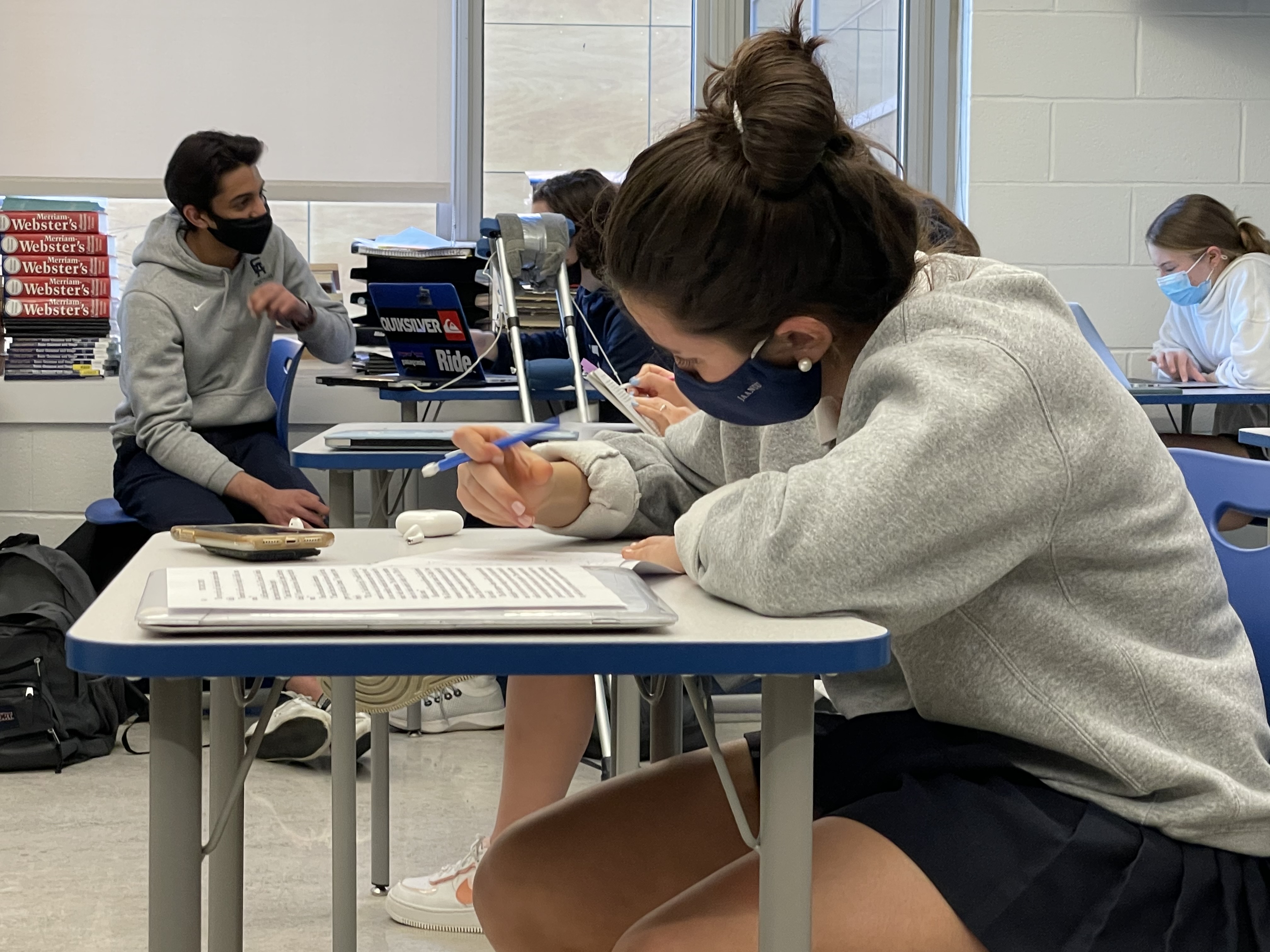Ronak Nagar ‘24
The COVID-19 pandemic has intensified stress in youth populations, especially in terms of learning and school. The circumstances of the past year have also led scientists and psychologists to analyze mental health in teen and adult populations; some sources indicate mental health has decreased, while others believe the opposite. Dr. Lily Hall, an EA Upper School psychologist, states that teen mental health “has gotten worse because this is a totally different time and it has been an adjustment.”

However, Hall and Father Timothy Gavin, Head Chaplain, do not believe that the restrictions presented by the pandemic constrict teen independence. Dr. Hall explains that from the teenage perspective, the pandemic seems to have posed solely restrictions, but she believes that there is a newfound independence that is overlooked. She comments, “Now we have, for better or for worse, more time on our computers, so there is a certain level of independence that teens have on their computers that adults don’t understand to the same level.” Gavin agrees with this statement and explains that the pandemic “makes them more independent. I think they have to, in an ironic way, rely more on their inner resolve to handle all the pressure of the pandemic.” He adds, “being online, you have to be more of a self-starter than if you are in school everyday,” and compliments the students at the Episcopal Academy for being responsible in terms of social distancing and mask wearing.
On the other hand, Dr. Nicole Chaikin, an EA Upper School psychologist, believes that the pandemic has hampered the development of teens’ independence. “Kids are supposed to be out, interacting with each other, learning from each other, making mistakes with each other and learning from those mistakes. Not having those opportunities to do normal developmental tasks without adults around has definitely made it harder.” The pandemic has also taken a toll on adult mental health, perpetuating the importance of self-care and reflection. “The number one thing that we can do”, Hall explains, “is to look back at this experience as an opportunity for growth and learning. We can build momentum to move forward… it is also a good idea to ask about other friends, siblings, grandparents, and parents to see how they are coping with the situation or how you can help.”
Chaikin, Hall, and Gavin all agree on a standard set of practices to maintain positive mental health. They each explain that getting the optimal amount of sleep can be very beneficial to the human body – ranging from eight to ten hours every night. Although the majority of teens play sports at EA, it is still important to exercise for those who don’t. According to Hall, even just 30 minutes, three times a week, “could change a student’s mindset and set them in the right direction.” Additionally, going outside for some fresh air or a brain break is an added bonus. They explain that helpful outdoor activities could include walking a pet or playing with a sibling.
Chaikin stresses the importance of avoiding “doom scrolling”, a situation in which teens continually consume negative news online, noting that this only worsens mental health. One of the main things that teens should do, she recommends, is to connect with others. Chaikin adds, “it may be on Zoom or FaceTime, but as long as you are staying connected to people, it will be beneficial.”
Gavin lives by a similar mantra, dubbing his goals as “the 5 gets” during challenging times: “they are ‘getting outside’, ‘get moving’ (exercising), ‘get dirty’ (playing sports or gardening), ‘get rest’, and ‘get nutrition’. Doing these things gives you a sense of accomplishment, which does a lot for mental health.” Hall, Chaikin, and Gavin continue to stress the importance of reaching out to a trusted adult in times of mental need during these tumultuous times.